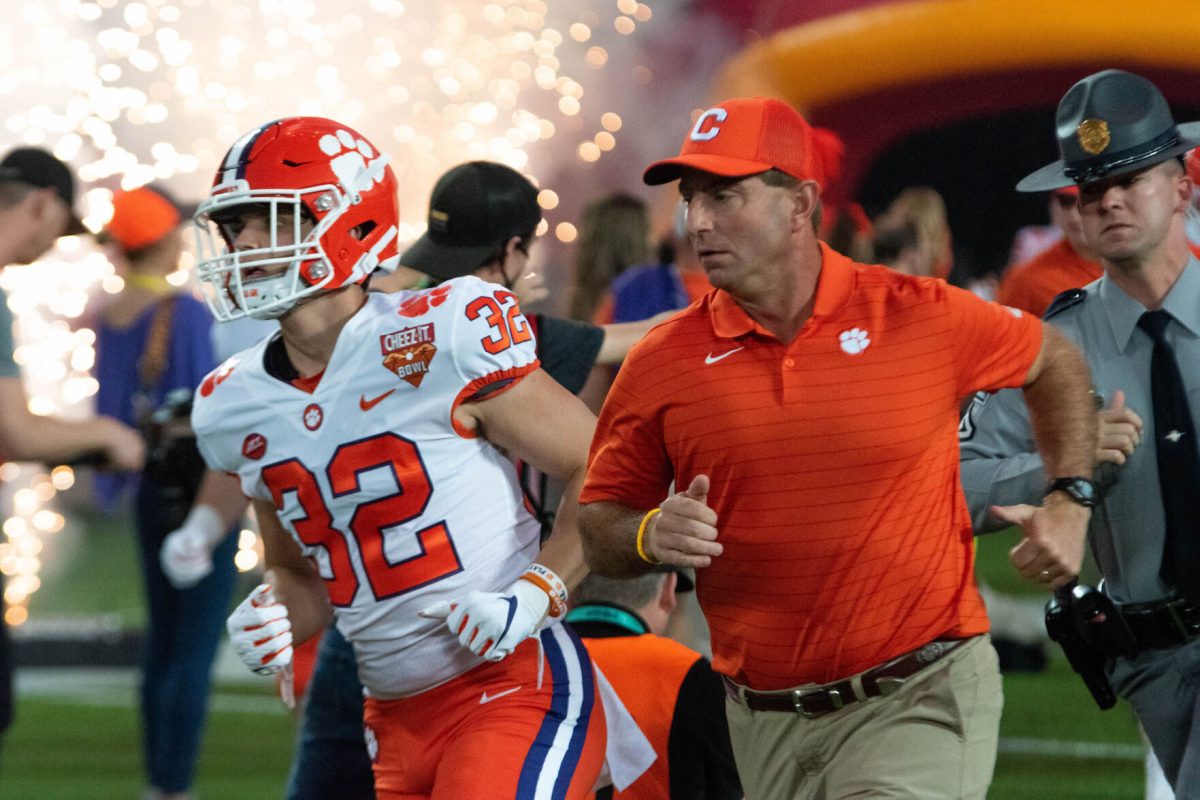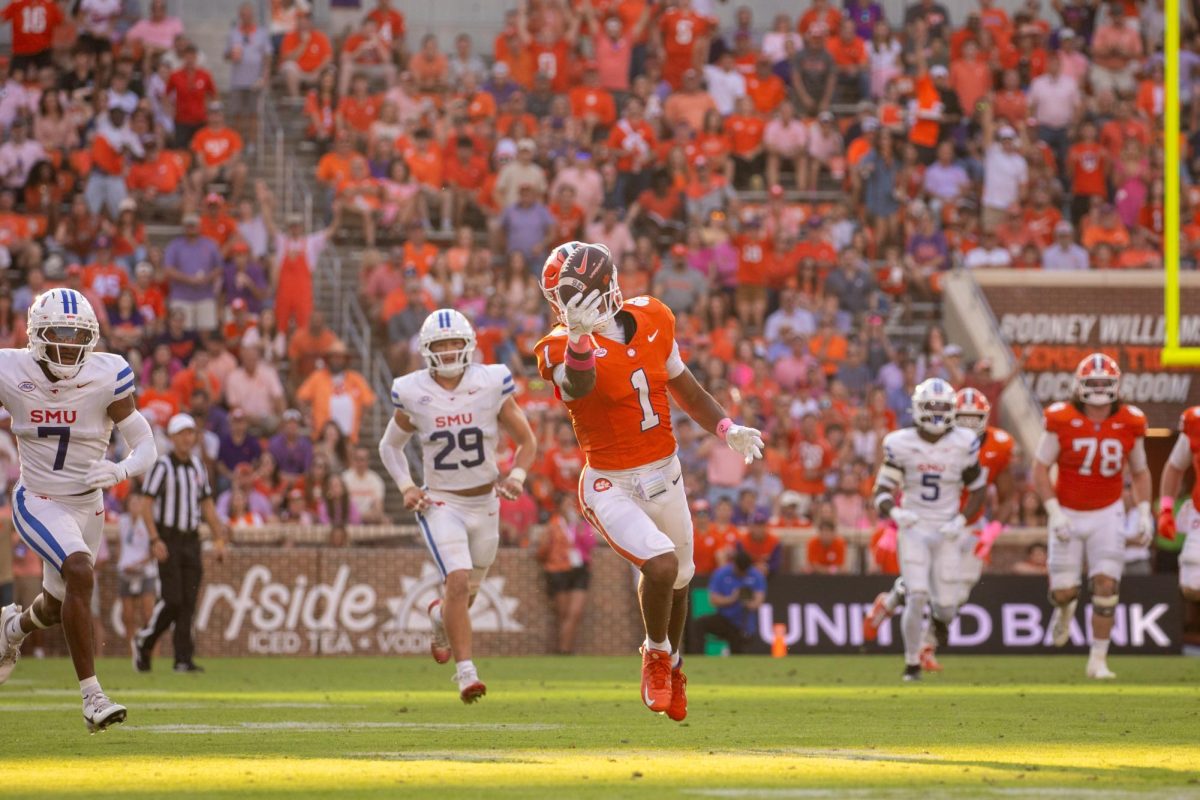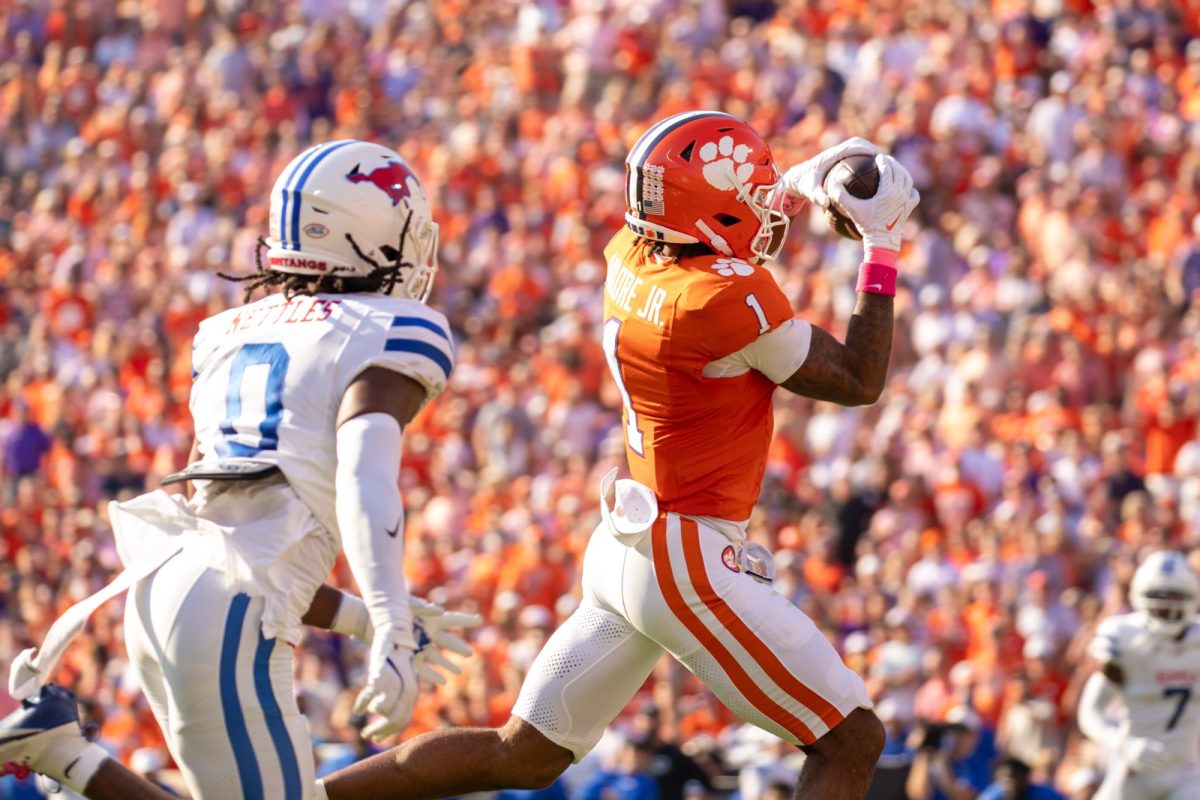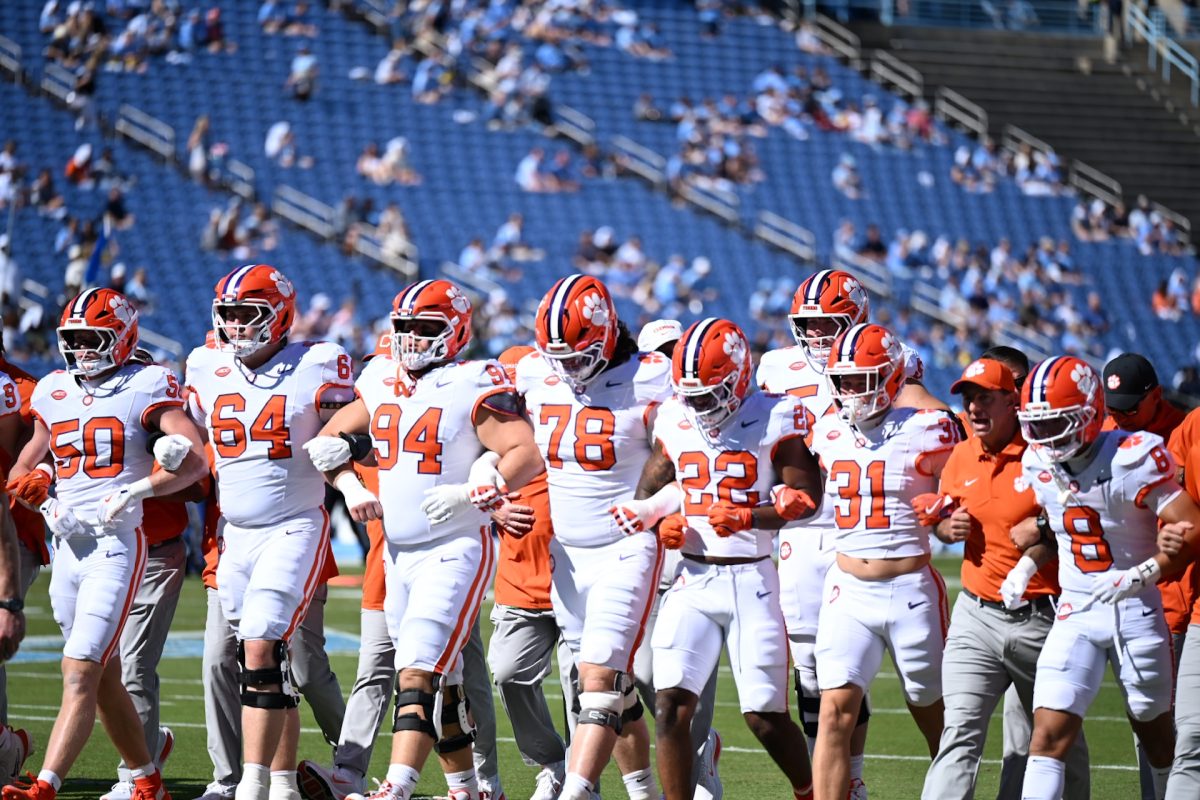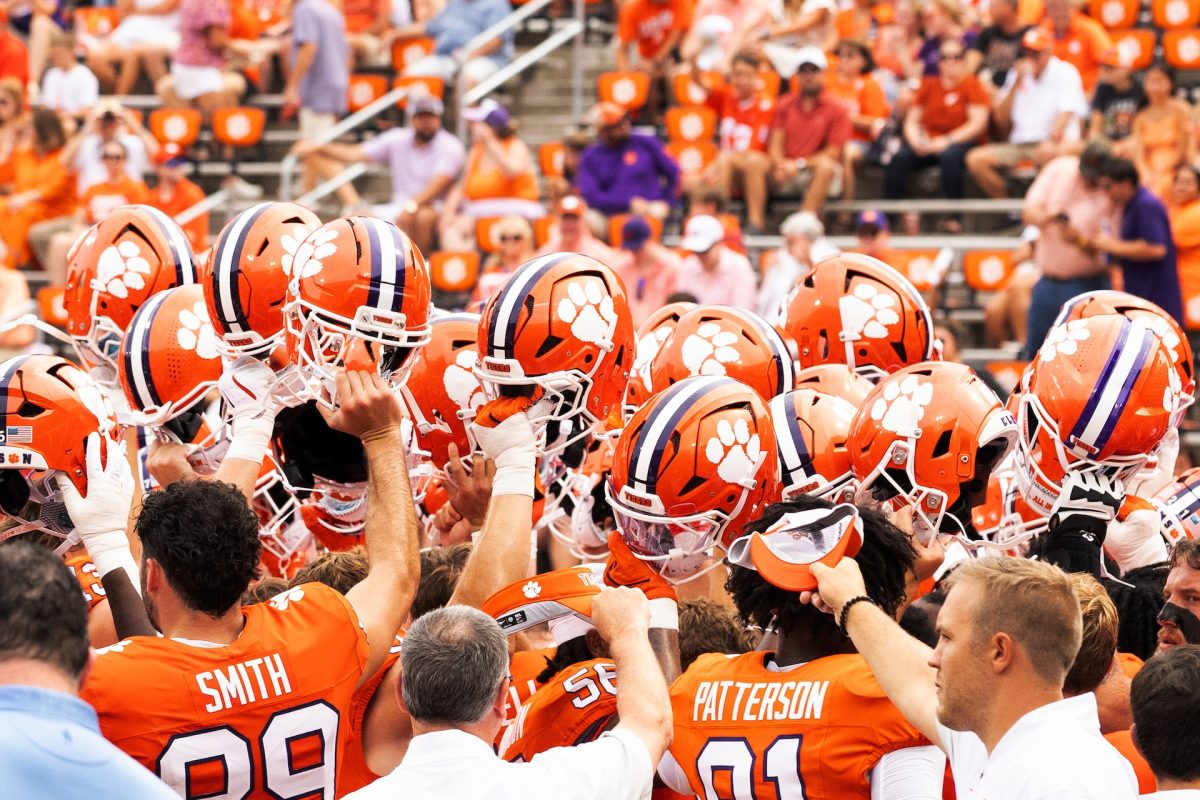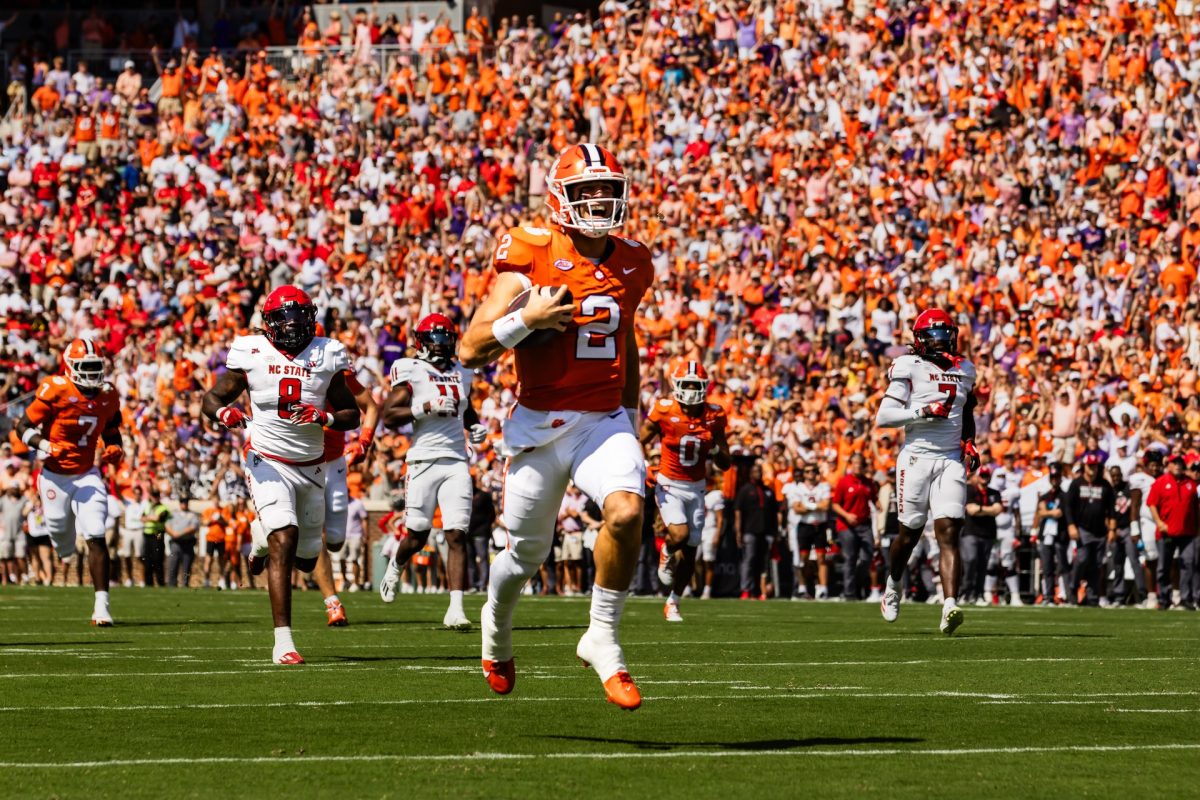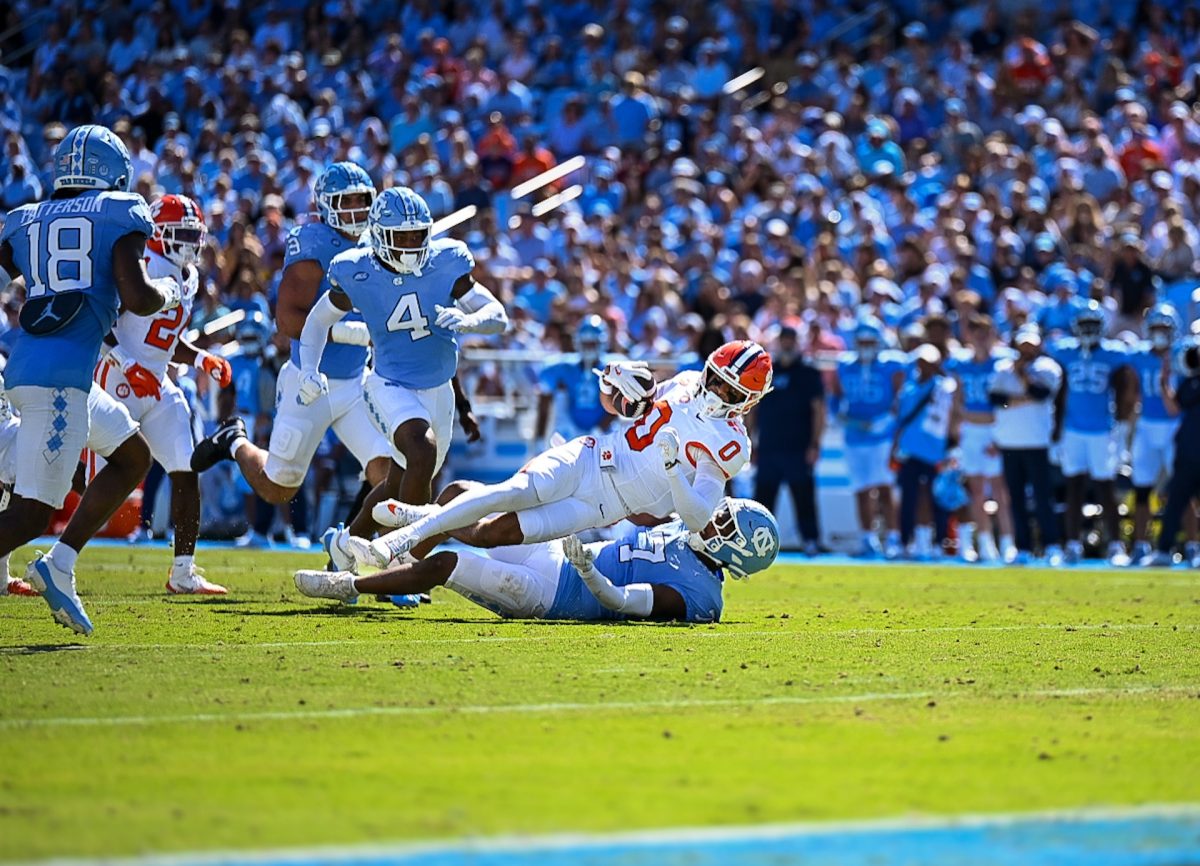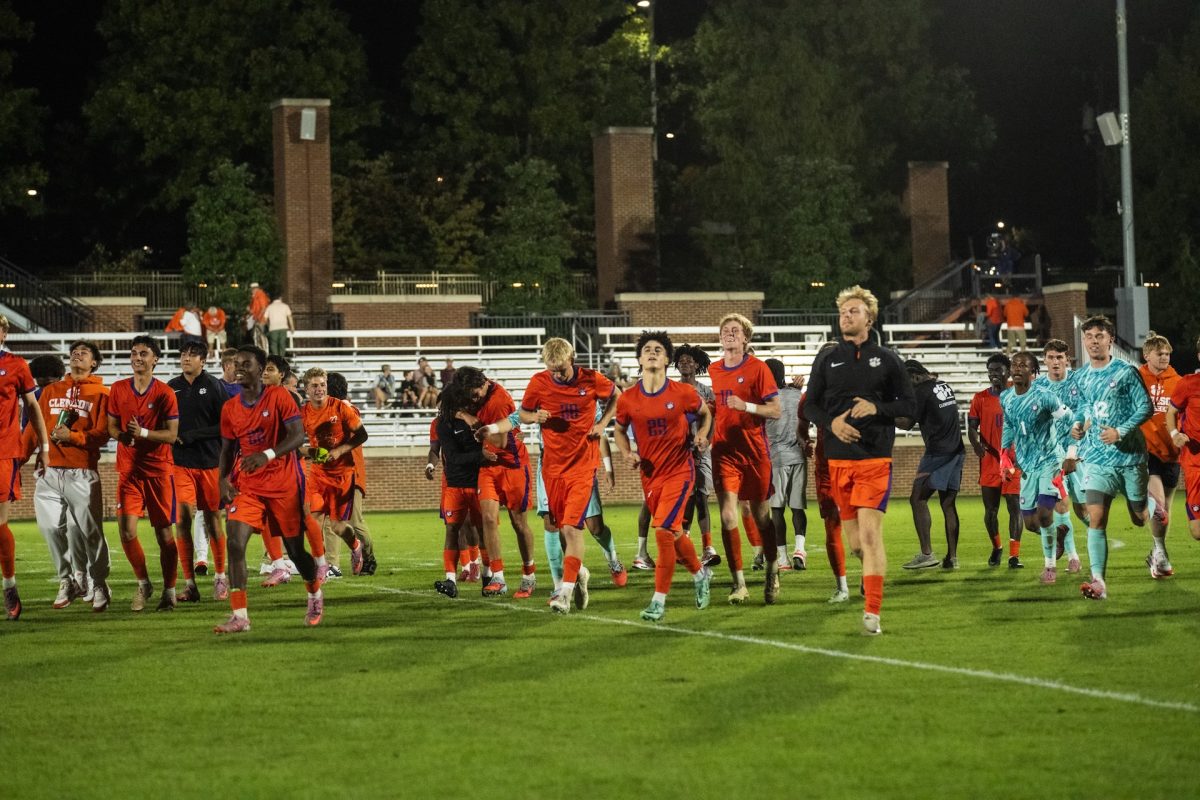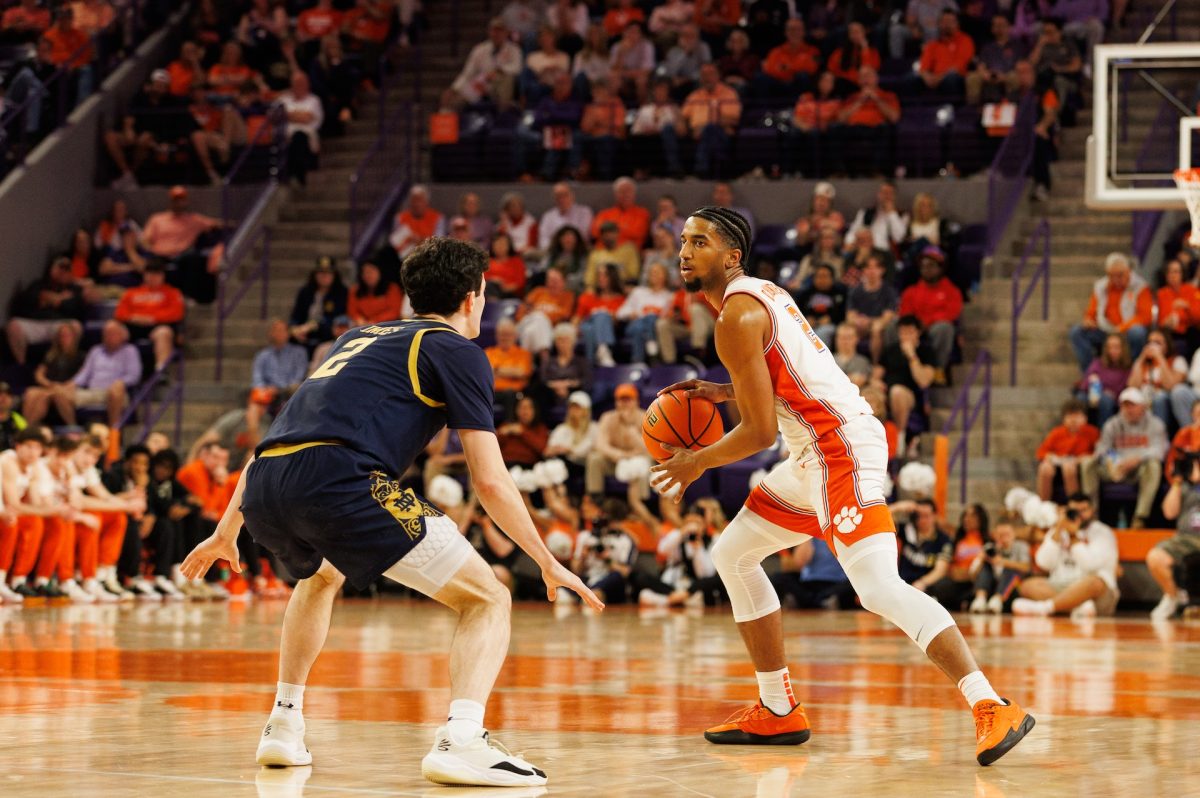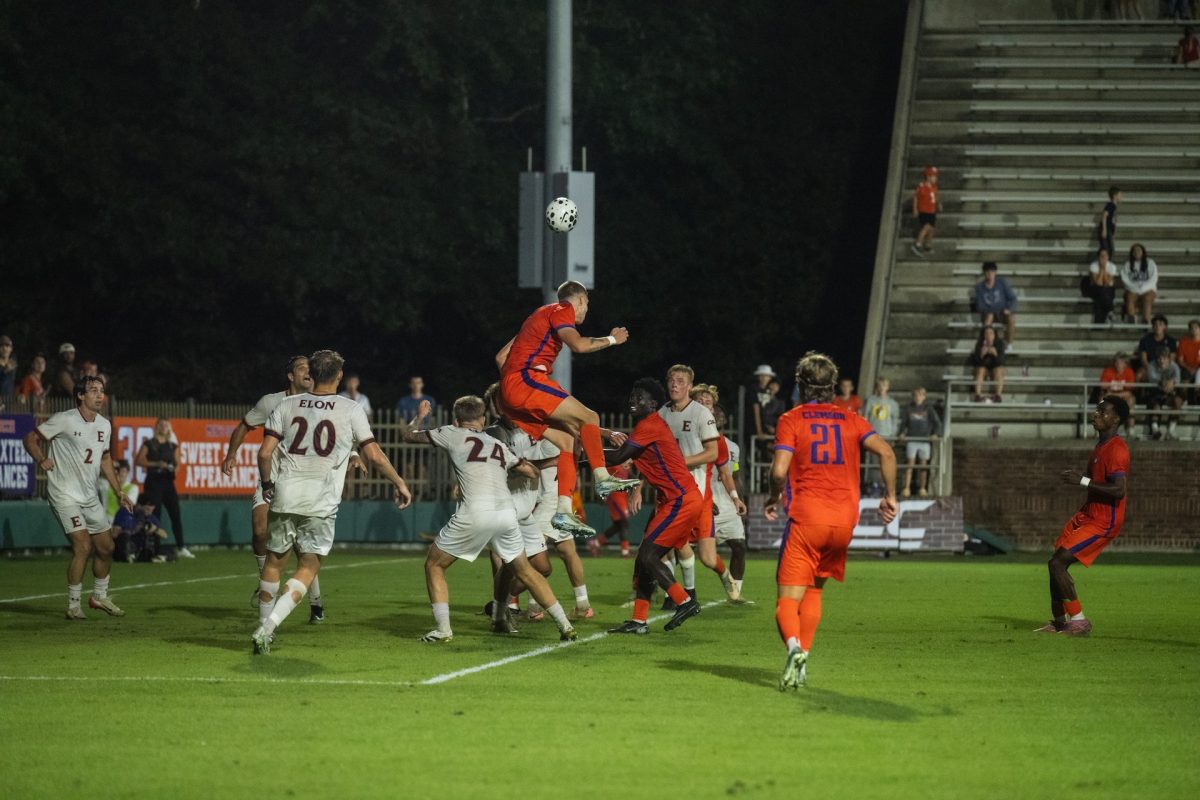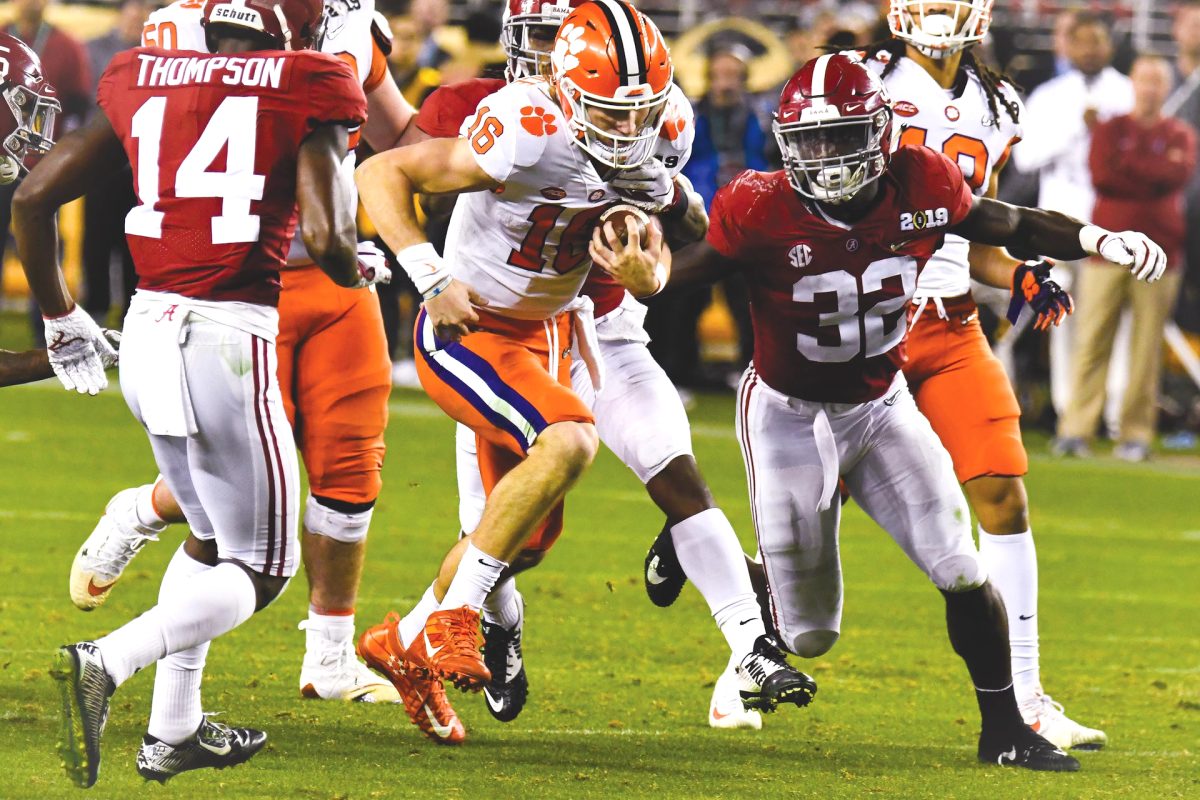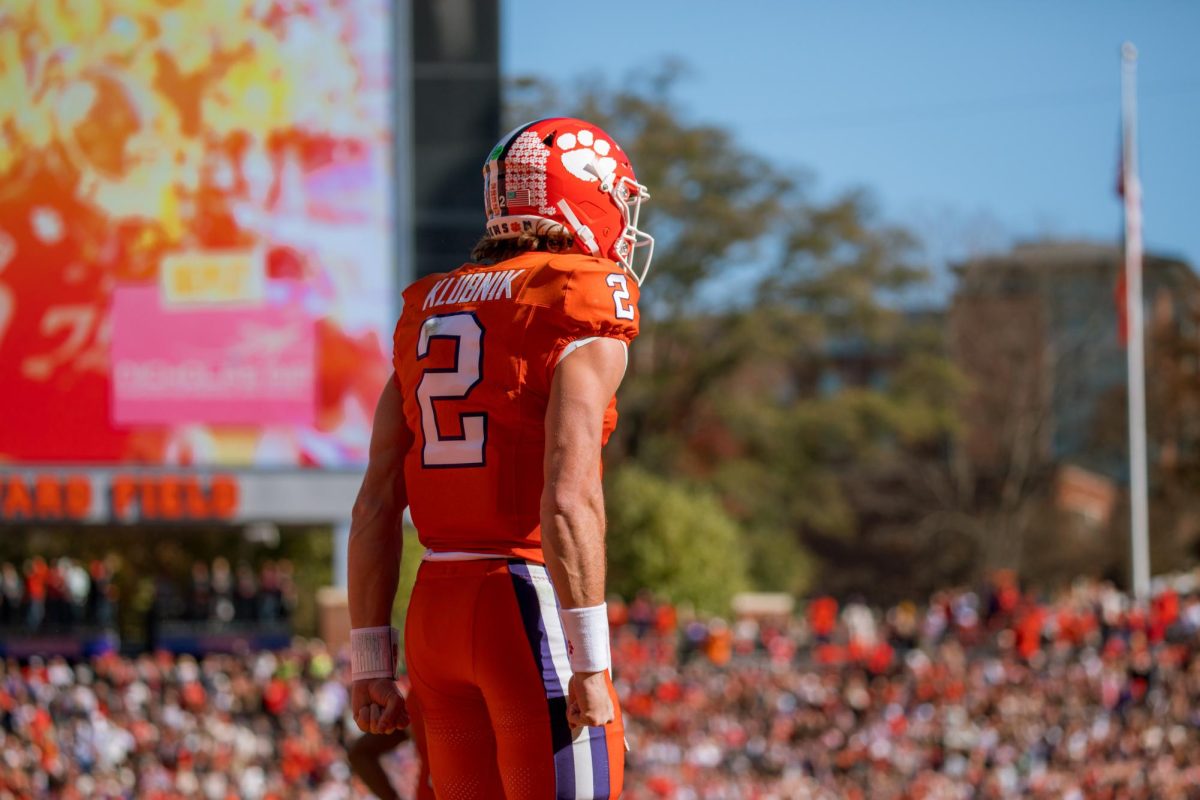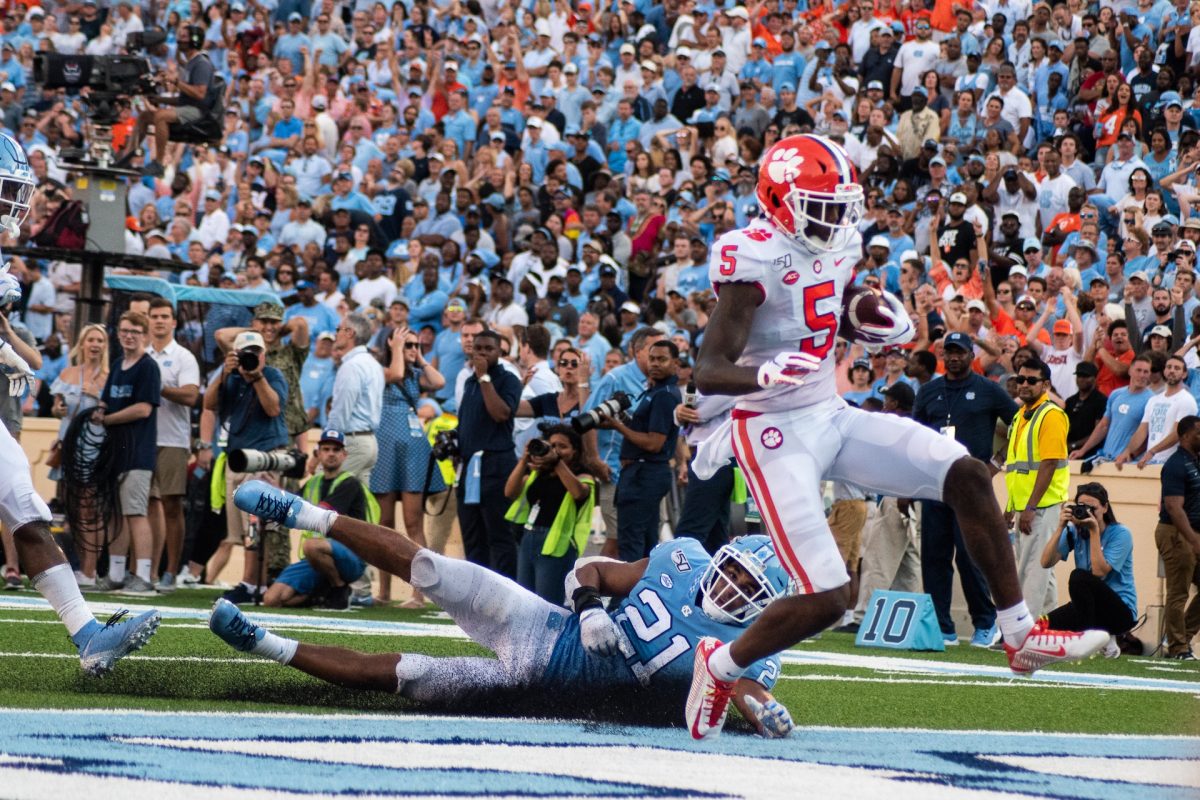“I’m as proud of this team as the 15-0 team when we held up the trophy,” head coach Dabo Swinney said after the Cheez-It Bowl. “It’s incredible what they had to deal with this year…. They never flinched. They kept fighting. They kept faith, and they finished.”
This season, the Tigers showed what the Clemson culture is all about through hard work, grit and resilience.
Paws up: Clemson culture
After a 2-2 start to the season, many people wrote off Clemson as a team that could compete, let alone win ten games.
In their final nine games, Clemson went 9-1, including a six-game winning streak that was highlighted by a win over No. 10 Wake Forest and a Cheez-It Bowl victory.
“This team is right there with any team I’ve had,” said Swinney. “There’s not many programs out there that could have done what this group did this year.”
Coach Swinney was right; there are not many programs that could handle the lengthy injury report and earlyseason struggles that Clemson faced.
Furthermore, Clemson has had nine scholarship players enter the transfer portal since September.
Despite having 28 scholarship players unavailable to play in the CheezIt Bowl and two coordinators leave, the Tigers still had zero opt-outs for the bowl game. That commitment shows the Clemson culture that coach Swinney has developed with his players and staff.
Paws down: Injuries
Perhaps the biggest reason why Clemson was unable to return to the ACC Championship and CFP is because of the long list of injuries Clemson faced.
To start, Clemson had five season-ending injuries by the team’s bye week in week six, including Bryan Bresse and Landon Zanders.
Clemson also lost a significant number of players for large chunks of the regular season to injuries like Will Shipley, Tyler Davis and Justyn Ross.
Not only did Clemson lose star players, they also lost depth. This lack of depth contributed to Clemson’s offensive struggles, primarily passing.
Despite having talented backups at offensive line and receiver, it is hard for players to succeed early if they lack experience.
By Clemson’s final regularseason game, quarterback DJ Uiagalelei’s receiving core had true freshmen Beaux Collins and Dacari Collins at wideout with senior Will Swinney in the slot as starters.
Like many people’s New Year’s resolutions, Clemson’s will be better health.
Paws up: Will Shipley
Despite being a true freshman, Will Shipley put together an incredible season and etched his name into Clemson history.
With the combination of downhill running and speed, Shipley racked up over 800 total yards (739 rushing, 116 receiving) and 11 rushing touchdowns in only 10 games.
His 11 were the second-most rushing touchdowns by a true freshman in Clemson history.
“In terms of being mentioned with C.J. Spiller, I don’t really know what to say about it,” said Shipley after tying the 2nd place record with Spiller. “To kind of see the way that he changed college football and being in the same room as his name is an honor for me. It truly is,”
His freshman performance also landed him runner-up for All ACC Rookie of the Year.
Paws down: Passing offense
Entering the season, many thought Clemson’s passing attack would be one of the best in the nation. Uiagalelei had the second-best preseason odds of being the Heisman and had a projected top-tier receiving core to throw to.
Unfortunately, the passing game never materialized for a number of reasons, including a depleted receiving core and accuracy issues.
Last season, Uiagalelei started two games for Clemson and averaged 390.5 passing yards and two passing touchdowns. He took a step back this year and averaged 172.8 passing yards per game and threw for nine touchdowns.
Clemson also did not have a single receiver crack the top-200 for most receiving yards this season. Ross led all Clemson receivers with 514 receiving yards, and Joseph Ngata had the second most with 438 receiving yards.
Paws up: Defense
As the adage goes, you save the best for last. Clemson finished with the eighth-best total defense in the nation after finishing top-10 in nearly every FBS defensive category. Most importantly, the Tigers allowed the second-fewest points per game at 14.85.
Clemson ranked top-seven in rush defense and pass defense. Per game, they averaged 3.23 sacks, 7.1 tackles for loss and 1.6 turnovers forced.
The front seven was anchored by sophomores Myles Murphy and Trenton Simpson who combined for 14.5 sacks and 145 total tackles.
In the secondary, Andrew Booth Jr., Mario Goodrich III and Andrew Mukuba halted any oncoming air travel. They helped allow only 209.2 passing yards per game and contributed to a top-five defensive passing efficiency of 110.07.
Overall, Clemson put together an incredible season and accomplished a lot throughout the process.



